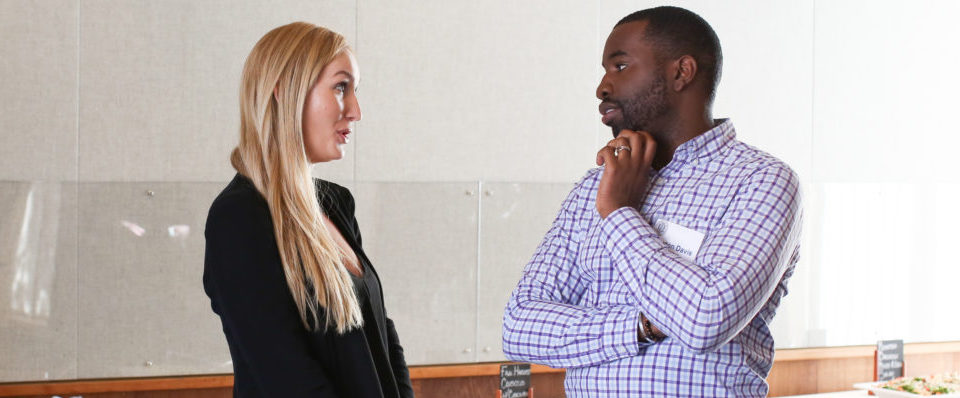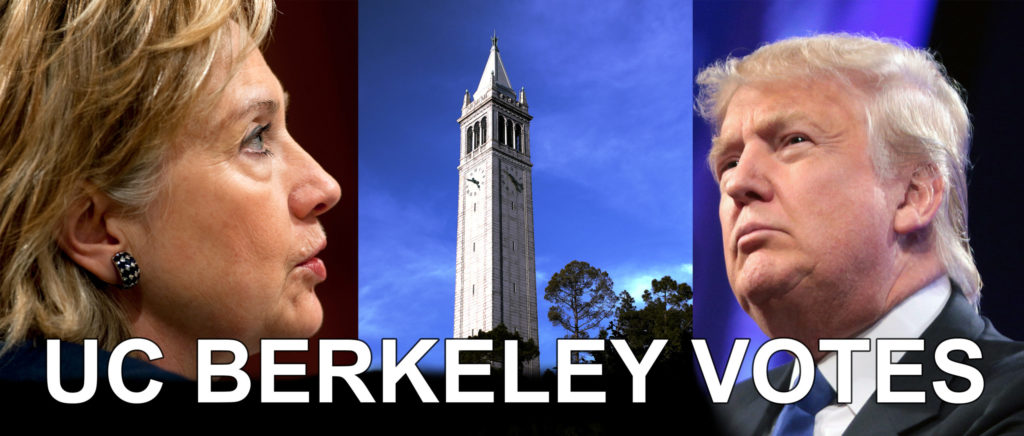Ashley Williams opened her Apple laptop and turned the screen to face two men seated in front of her at a round, silver table. Clicking through slides, the 28-year-old former journalist walked them through her vision for Rizzarr, the startup she founded more than two years ago.
“We basically are a social media platform meets a millennial marketplace,” Williams explained. She pointed out that the company had amassed more than 4,700 millennial content creators and was in the process of raising seed funding from investors. “I feel like I’m talking super fast, sorry,” she said, smiling nervously. “Is there anything you noted we can do to showcase our company in the best light?”
“There needs to be a clear way you’re distinguishing yourself from all the other social media companies. It needs to be a bit more simplified,” said Jason Kwon, general counsel of a fund at Y Combinator, a startup incubator based in Mountain View.
“Got it, got it,” Williams said, typing notes into her phone with her thumb.
“I think you’re on your way,” added Charles Sims, an attorney at Wilson Sonsini Goodrich & Rosati.
“Thank you,” Williams said. “It’s been a long, arduous process.”
Williams was one of eight entrepreneurs who flew to San Francisco in July to attend the Code2040 Summit, an event that promotes diversity in the tech industry, with funding from Startup@BerkeleyLaw, an initiative based at UC Berkeley’s law school. In a warehouse-like space with exposed beams and neon blue lights, they took in panels like “Prioritizing Diversity in Company Growth” and “How to Launch a Company When Investors Ain’t Writing Checks.” Upstairs, they met with leading investors and attorneys in half-hour sessions.
On July 18, the two-year-old Startup@BerkeleyLaw initiative announced the launch of Access to Entrepreneurship, a new program designed to help underrepresented startup founders around the country start and grow businesses, thanks to a gift from the law firm Wilson Sonsini. The gift, of an undisclosed amount, aims to help disadvantaged entrepreneurs connect with investors, attorneys, law students, fellow founders, and other resources, starting with the Code2040 Summit and a one-day intensive seminar at the law school campus.
West said he has stopped volunteering the fact that he’s the company’s founder and CEO, instead calling himself a “sports/tech resident pro,” after a major corporate partner quit returning his phone calls once they learned he was in charge.
“It’s not the best products or teams that get funded in Silicon Valley; it’s the folks who have the best access to capital. It’s a closed network, and that’s something we’re trying to break down,” says Adam Sterling, executive director of the Berkeley Center for Law, Business, and the Economy, where the Startup@BerkeleyLaw initiative is based.
Williams, who flew in from a suburb of Detroit, said the chance to meet with prominent tech attorneys opened new doors and helped her figure out how to better articulate her vision for investors. “Being a woman who’s a minority is a blessing and an opportunity, but you also have to work five times as hard. I feel like I have to not just pave my way, but literally carve it out to make people take me seriously and give me a shot,” she said. Williams added that investors and people she meets at industry events often don’t believe her initially when she tells them she’s the company’s founder. “Having access to these resources can truly get me to where I need to be—otherwise, it’s like a maze,” she said.
Rashad West, a 33-year-old founder from Raleigh, North Carolina, also attended the Code2040 Summit with support from the Access to Entrepreneurship program. A former basketball player in overseas leagues, last year West launched Courtside Xperience, an experiential gaming studio that uses basketball fundamentals to teach science and math concepts to kids and teens. West said he has stopped volunteering the fact that he’s the company’s founder and CEO, instead calling himself a “sports/tech resident pro,” after a major corporate partner quit returning his phone calls once they learned he was in charge.
“I learned my lesson, but that’s the nature of the beast,” West says. “I don’t think there’s a lack of resources [for underrepresented founders]; I think there’s a lack of capital. This event has given me the opportunity to build relationships that’ll be meaningful forever.”
Startup@BerkeleyLaw was founded in 2015 to help train law students who plan to work with entrepreneurs while filling a gap in access to resources for founders across the campus. “When starting a company, navigating a complicated mix of legal, operational, and financial factors is pretty overwhelming, but it’s absolutely vital,” says Robert Bartlett, a law professor and faculty director of the Berkeley Center for Law, Business, and the Economy. “We provide entrepreneurs with training on how to incorporate, how to ensure companies own their intellectual property, how to manage human resources issues, among other things.”
Last year, the initiative provided 600 entrepreneurs across campus with monthly workshops and office hours with investors and lawyers from Silicon Valley firms. With the new gift, the initiative will hold workshops twice a month and expand to online trainings and office hours. It will also support a two-year-old effort that brings UC Berkeley students to advise entrepreneurs in the Central Valley along with local community organizations.





















